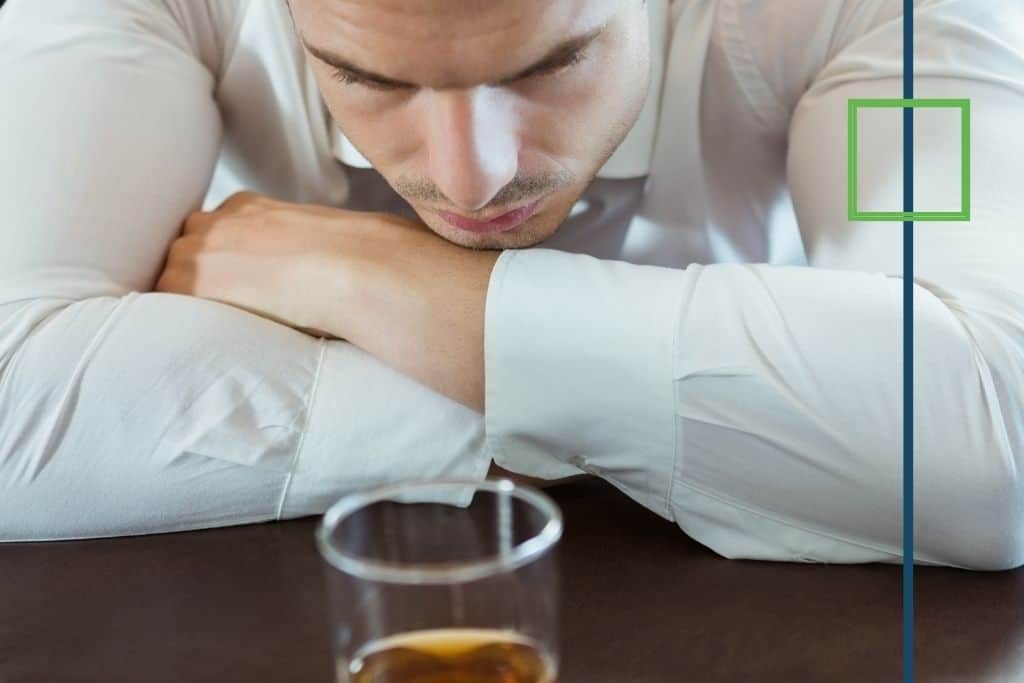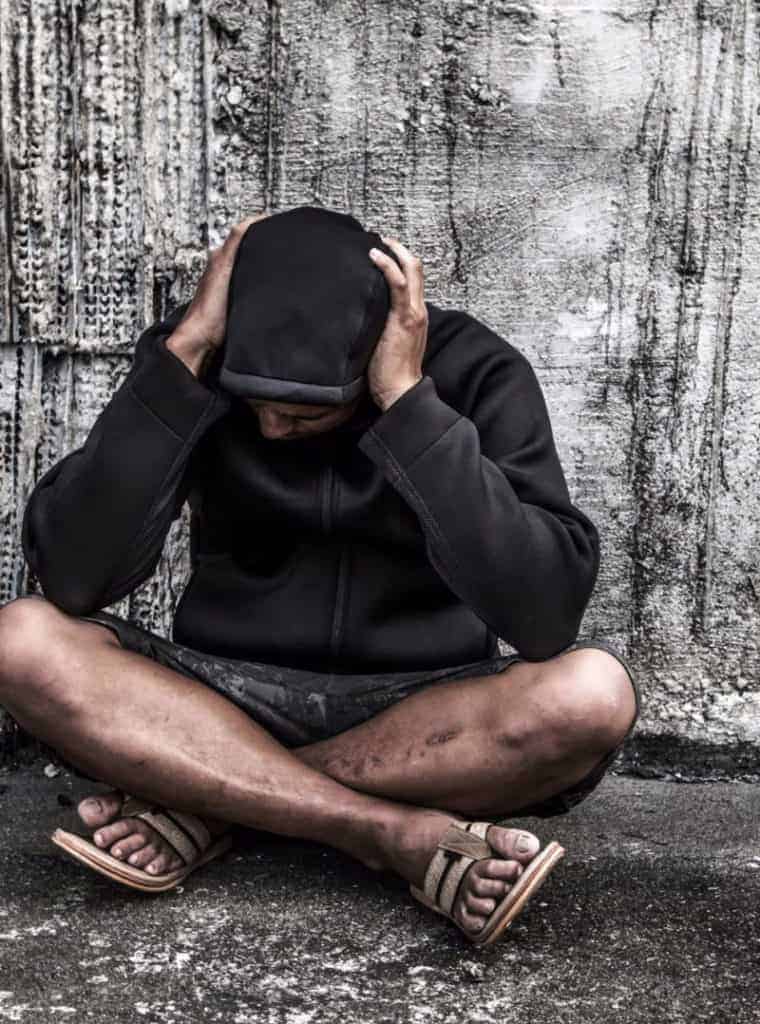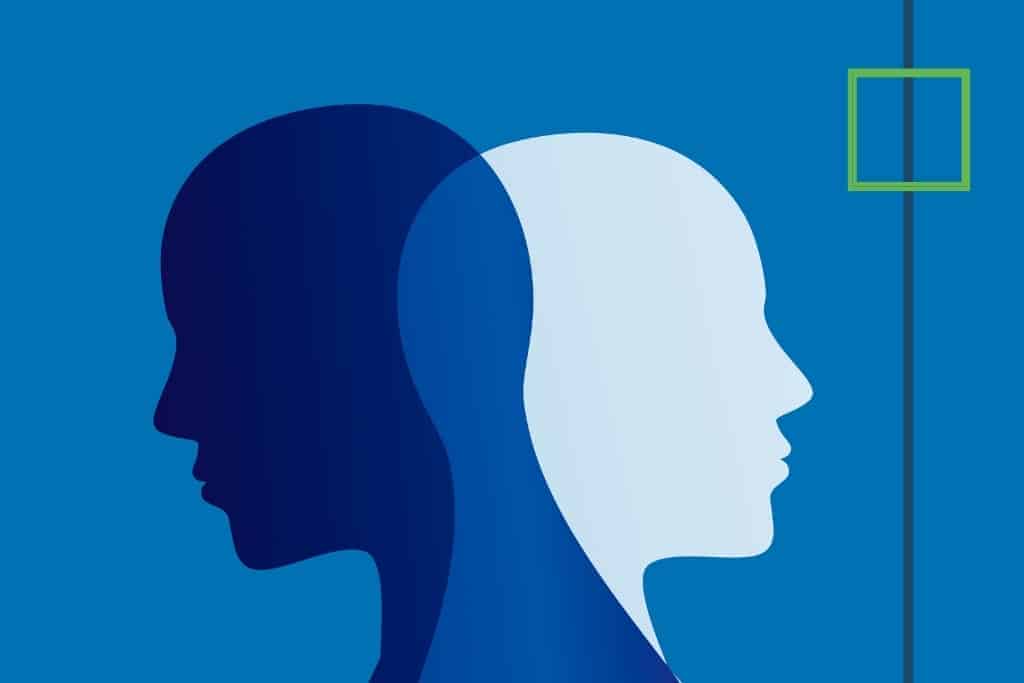What is Mental Illness? And how what is it’s impact on alcohol and anxiety?
According to the American Psychiatric Association, mental illnesses involve changes in thoughts, emotions, and behaviors; because of such modifications, mental illness can result in significant work, family, and social functioning[1]. Mental illness is widespread in the United States, with the National Institute for Mental Health reporting that roughly 1 in 5 adults struggles with some form of mental illness[8]. In 2019, around 51.5 million American adults had a mental health disorder, with such conditions being more prevalent in women (25.6%) than men (16.3%)[1].
Why People Abuse Alcohol?
Alcohol is a drug. It is classed as a depressant, which slows down vital functions—resulting in slurred speech, unsteady movement, disturbed perceptions, and an inability to react quickly. As for how it affects the mind, it is best understood as a drug that reduces a person’s ability to reason and distorts their judgment.

Get Help. Get Better. Get Your Life Back.
Searching for Accredited Drug and Alcohol Rehab Centers Near You?
Even if you have failed previously and relapsed, or are in the middle of a difficult crisis, we stand ready to support you. Our trusted behavioral health specialists will not give up on you. When you feel ready or just want someone to speak to about therapy alternatives to change your life call us. Even if we cannot assist you, we will lead you to wherever you can get support. There is no obligation. Call our hotline today.
(844) 597-1011What are Anxiety Disorders?
It’s normal to feel anxious about moving to a new place, starting a new job, or taking a test. This type of anxiety is unpleasant, but it may motivate you to work harder and to do a better job. Ordinary anxiety is a feeling that comes and goes but does not interfere with your everyday life.
It can be easy to dismiss occasional nervousness, stress, or fear as just a part of the human condition. Everyone is worried. However, when anxiety becomes persistent and seemingly uncontrollable, it can be disabling, leaving you feeling like there is no light at the end of the tunnel. If these thoughts begin to interfere with your everyday life, it may point to a more serious mental health condition. In people with anxiety disorders, worry is more than just a temporary feeling and can worsen over time[2].
Referring to specific psychiatric disorders that involve extreme fear or worry, the term “anxiety disorder” includes the following[1]:
- Generalized Anxiety Disorder: occurs when individuals have long periods of ongoing anxiety occurring more days than not over six months.
- Panic Disorders: occur when individuals who have experienced panic attacks develop dysfunctional behaviors due to anticipating future panic attacks for at least one month.
- Phobias: These are anxiety disorders that occur due to extreme anxiety or fear of specific types of objects, living things, or situations[2]. The concern that the person experiences is out of proportion to the actual threat these objects or situations present and typically lasts six months or more.
- Social Anxiety Disorder: Individuals with social anxiety disorders tend to have excessive feelings of anxiety for six months or more when they think they will be exposed to social situations and may believe other people will harshly evaluate them.
- Agoraphobia: This disorder includes extreme anxiety when individuals are in situations where they believe they cannot escape, such as open spaces, enclosed spaces, in a crowd, or while inside or outside the home. For a formal diagnosis of agoraphobia to be made, the individual must have this extreme fear or anxiety associated with two different situations and typically for six months or more.
What’s the Connection Between Alcohol and an Anxiety Disorder?
Before diving into how alcohol and anxiety disorders are linked, it’s helpful to know the difference between a healthy amount of anxiety and a disorder that interrupts your life. Anxiety has a functional component that allows individuals to anticipate fear to recognize and deal with potentially harmful situations[3]. The experience of anxiety can trigger our fight-or-flight response when the body shifts its energy toward fighting or fleeing from a potential threat[2]. For example, a person walking down an alley at night may experience a high level of anxiety and fear as they spot a stranger coming toward them in the dark. Once the person has safely escaped the situation, their fear and anxiety will typically dissipate.

However, individuals who suffer from anxiety disorders continue to experience chronic anxiety levels for extended periods that are either out of proportion to any tangible or perceived threat and continue to experience high levels even when a perceived threatening situation has long been resolved. These individuals experience such a high level of significant distress and dysfunction due to their anxiety that it interferes with their normal functioning.
While various anxiety disorders have unique or specific symptoms, they all share persistent, excessive dread or worry even in not threatening situations. Those with anxiety disorders may experience the following symptoms[1]:
- Restlessness or irritability
- Upset stomach, frequent urination, or diarrhea
- Sweating, tremors, and cramps
- Being watchful for signs of danger and anticipating the worst
- Feelings of apprehension or dread
- Pounding or racing heart, shortness of breath
- Headaches, fatigue, and insomnia
- Feeling jumpy or tense

Get Your Life Back
Find Hope & Recovery. Get Safe Comfortable Detox, Addiction Rehab & Dual Diagnosis High-Quality Care.
Hotline(844) 597-1011How Are Alcohol and Anxiety Disorders Linked?
Anxiety disorders are the most common and prevalent mental disorders, with around 48 million people experiencing one in any given year[4]. Yet only about 43.4% of those individuals received treatment in 2018[4]. In addition, studies have shown that many people use drugs or alcohol to cope with anxiety disorders or relieve anxiety symptoms. Over time, this may develop into a substance use disorder such as alcoholism. According to a survey by the National Institute on Alcohol Abuse and Alcoholism (NIAAA), individuals who had co-occurring diagnoses of an anxiety disorder and a substance use disorder (e.g., an alcohol use disorder) were far more common than individuals who had a precise diagnosis of an anxiety disorder.
However, when it comes to understanding both disorders, it can be hard to determine which came first—an alcohol use disorder that led to an anxiety disorder or vice versa. Many individuals who have a co-occurring anxiety disorder and alcohol use disorder report that they had issues with substance and alcohol abuse before developing problems with anxiety.
Additionally, some studies show that though individuals report their alcohol abuse beginning to cope with anxiety, other studies show that individuals diagnosed with panic disorder developed alcohol abuse issues before their disorder was recognized.
Many researchers and clinicians currently believe that the relationship between anxiety and alcohol abuse is multifaceted and consists of variables that interact to produce specific presentations in different people. One of the most common explanations of the relationship between anxiety disorders and substance abuse is a shared liability model that conceptualizes most anxiety and substance use disorders as interrelated.
Individuals who develop an anxiety disorder are at an increased risk of developing a substance use disorder and vice versa. The factors that interact to produce this vulnerability include genetic and environmental factors, such that different interacting factors are more likely to produce various co-occurring disorders[1] Meaning, simply having either a diagnosis of an anxiety disorder or a diagnosis of an alcohol use disorder could cause the other disorder to occur.
First-class Facilities & Amenities
World-class High-Quality Addiction & Mental Health Rehabilitation Treatment
Rehab Centers TourRenowned Addiction Centers. Serene Private Facilities. Inpatient rehab programs vary.
Addiction Helpline(844) 597-1011Proven recovery success experience, backed by a Team w/ History of:
15+
Years of Unified Experience
100s
5-Star Reviews Across Our Centers
10K
Recovery Success Stories Across Our Network
- Low Patient to Therapist Ratio
- Onsite Medical Detox Center
- Comprehensive Dual-Diagnosis Treatment
- Complimentary Family & Alumni Programs
- Coaching, Recovery & Personal Development Events
Treating Co-Occurring Alcohol and Anxiety Use Disorders
When a person has more than one mental health disorder —such as an anxiety disorder and an alcohol use disorder—it is a dual diagnosis or co-occurring disorder. Regardless of which disorder developed first, each condition may influence the course of the other; and, if left untreated, could potentially result in a worsening of mental health symptoms or increased drinking. Because of this, an integrated approach to treatment is recommended to have both issues addressed at the same time[5]. An integrated approach uses specific therapeutic techniques or treatment strategies within a comprehensive, individualized treatment plan that focuses on both disorders within the same sessions or interactions.
To treat alcoholism, effective treatment may involve medications to ease alcohol withdrawal symptoms, private and group counseling, behavioral therapies, and long-term aftercare planning (e.g., support groups/mutual-help meetings, sober living arrangements) to help avoid relapse and maintain sobriety[6]. Anxiety disorder addition is typically treated with medication, psychotherapy, or a combination of the two[7].

Behavioral therapies for treating co-occurring anxiety disorders and alcoholism may include cognitive behavioral therapy, contingency management, and dialectical behavioral therapy[8]. Treatment may also include mental health and substance abuse education to teach healthy coping skills and better inform individuals about their relationships.
World-class, Accredited, 5-Star Reviewed, Effective Addiction & Mental Health Programs. Complete Behavioral Health Inpatient Rehab, Detox plus Co-occuring Disorders Therapy.
CALL(844) 597-1011End the Addiction Pain. End the Emotional Rollercoaster. Get Your Life Back. Start Drug, Alcohol & Dual Diagnosis Mental Health Treatment Now. Get Free No-obligation Guidance by Substance Abuse Specialists Who Understand Addiction & Mental Health Recovery & Know How to Help.
How Can I Get Help for Alcohol and Anxiety?
When considering treatment for anxiety disorder and alcohol use disorder, it is beneficial to look into facilities that offer treatment for co-occurring disorders. [9] At We Level Up provides a network of facilities equipped to treat co-occurring disorders. The therapeutic staff will tailor your mental health, and recovery treatment plans to best address the comorbidity. While there may be no cure for alcohol use disorders and mental illnesses, treatment interventions and evidence-based therapies may help manage dual diagnosis disorders.
In addition, we work as an integrated team providing information about the connection between alcohol and anxiety, that co-occurring mental health issue, and other aspects of treatment. Make this your opportunity to reclaim your life. Call today to speak with one of our treatment specialists. Our specialists know what you are going through and will answer any of your questions.
Our Level Up treatment center can help with inpatient therapy programs exclusively. Depending on the extent of secondary behavioral disorders such as addiction, we can first help assess your condition and, after that, guide you to suitable treatment options. We do not provide outpatient and PHP services at this time. Call to learn more.
Your call is private and confidential, and there is never any obligation.
Experience Transformative Recovery at We Level Up Treatment Centers.
See our authentic success stories. Get inspired. Get the help you deserve.
Start a New Life
Begin with a free call to an addiction & behavioral health treatment advisor. Learn more about our dual-diagnosis programs. The We Level Up Treatment Center Network delivers recovery programs that vary by each treatment facility. Call to learn more.
- Personalized Care
- Caring Accountable Staff
- World-class Amenities
- Licensed & Accredited
- Renowned w/ 100s 5-Star Reviews
We’ll Call You
Sources
[1] National Institute of Mental Health. (2018). Anxiety Disorders. -https://www.nimh.nih.gov/health/topics/anxiety-disorders/index.shtml
[2] Alcohol Org – https://www.alcohol.org/co-occurring-disorder/phobias/
[3] American Psychological Association. (n.d.). Stress Effects on the Body- https://www.apa.org/helpcenter/stress/effects-nervous
[4] National Alliance on Mental Illness. (2019). Mental Health by the Numbers. – https://www.nami.org/learn-more/mental-health-by-the-numbers
[5] Substance Abuse and Mental Health Services Administration. (2019). Detoxification and Substance Abuse Treatment, Tip 45 – https://store.samhsa.gov/sites/default/files/d7/priv/sma15-4131.pdf
[6] National Institute on Drug Abuse. (2019). Treatment Approaches for Drug Addiction. – https://www.drugabuse.gov/publications/drugfacts/treatment-approaches-drug-addiction
[7] National Institute on Drug Abuse. (2018). Comorbidity: Substance Use Disorders and Other Mental Illnesses. – https://www.drugabuse.gov/publications/drugfacts/comorbidity-substance-use-disorders-other-mental-illnesses
[8] American Psychiatric Association. (2018). What Is Mental Illness? – https://www.psychiatry.org/patients-families/what-is-mental-illness
[9] National Institute of Mental Health. (2021). Mental Illness.- https://www.nimh.nih.gov/health/statistics/mental-illness.shtml


